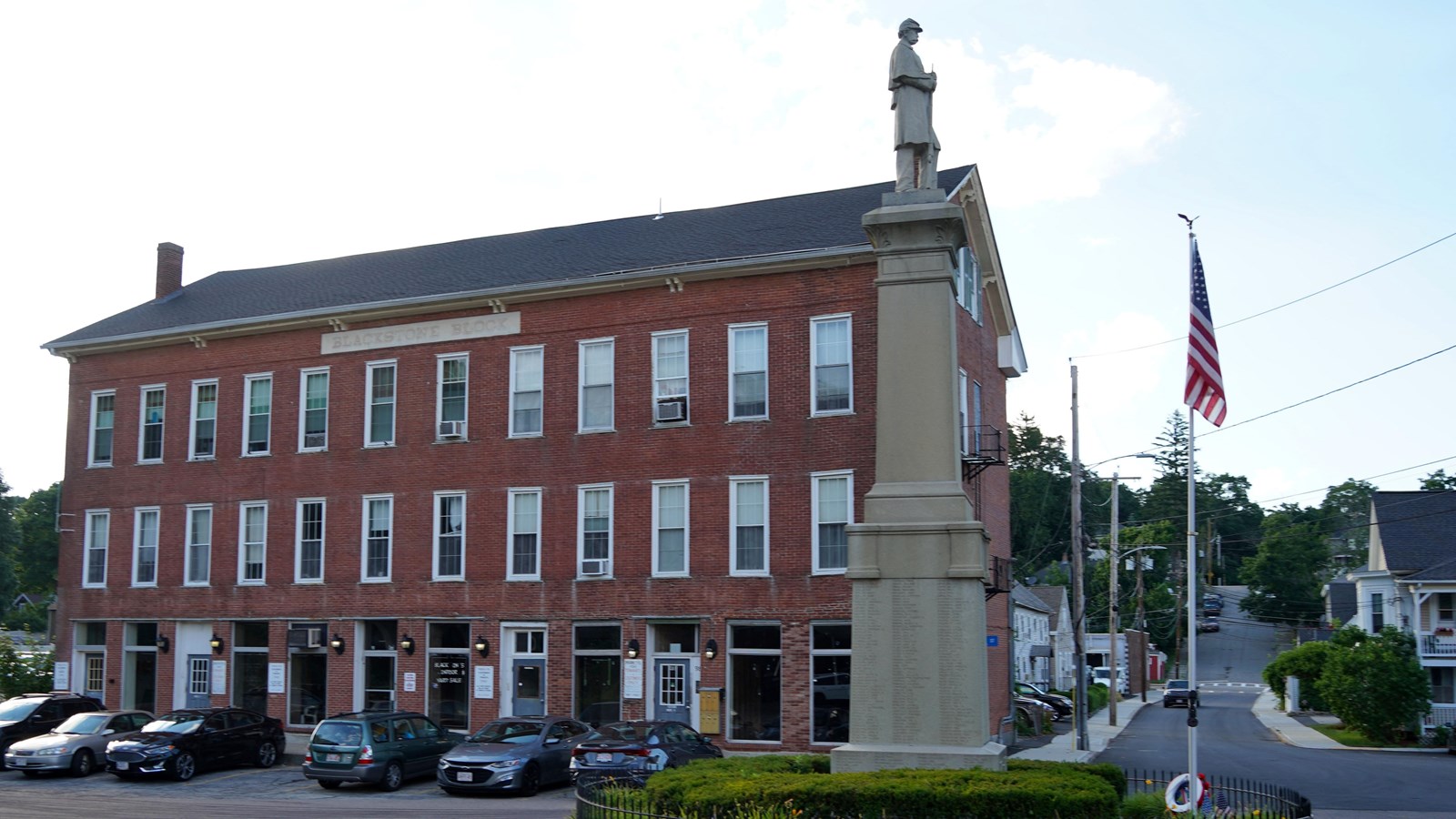Last updated: October 3, 2024
Place
Blackstone, Massachusetts

Hendrickson
Industrial development in this community began as early as 1808. It would eventually grow and develop into a bustling community on the state line between Massachusetts and Rhode Island with several textile mills and a bustling village. By 1821, 123 families lived in mill housing in the community which also encompassed a saw and grist mill, a dye house, barn, storehouse, and greenhouse.
Built at a crossroads of the Blackstone Canal and several different railways, it became not only a center of industry but also a gathering place, centrally located in the Valley. Blackstone, MA became a center of abolitionist thought and activity. In 1848, abolitionists in Blackstone, Massachusetts and surrounding towns hosted a Convention. Their meeting in the Blackstone Block was “held on a Sunday marking it as part of the abolitionists’ ongoing protest of Sabbath laws.”
Maria L. Southwick, a young resident of Mendon, MA, served as the Secretary. Southwick also took on the work of defending the event against a local resident who published a “mocking account” of the day in the Boston Daily Atlas.
Three years later, abolitionists gathered once again for their Great Union Anti-Slavery Fair. One advertisement meant to encourage fair-goers declared: “Friends of Freedom! Let the rich display of articles, the soul-stirring music and united eloquence of Old New England Bring together the largest meeting ever held in the valley of Blackstone!” These events, one hosted before and one after the passage of the Fugitive Slave Act suggest that there was a small, active group of abolitionists.
If fugitives sought freedom here, they did not stay and find a home. There were 11 free people of color in Blackstone in 1850, including a man who worked as a barber in town. That number was two in 1860. Lydia Maria Child, another noted abolitionist, explained that a person of color, “however intelligent, is not allowed to pursue any business more lucrative than that of a barber, a shoe-black, or a waiter.” Child concluded: “no other people on earth indulge so strong a prejudice with regard to color, as we do.”
